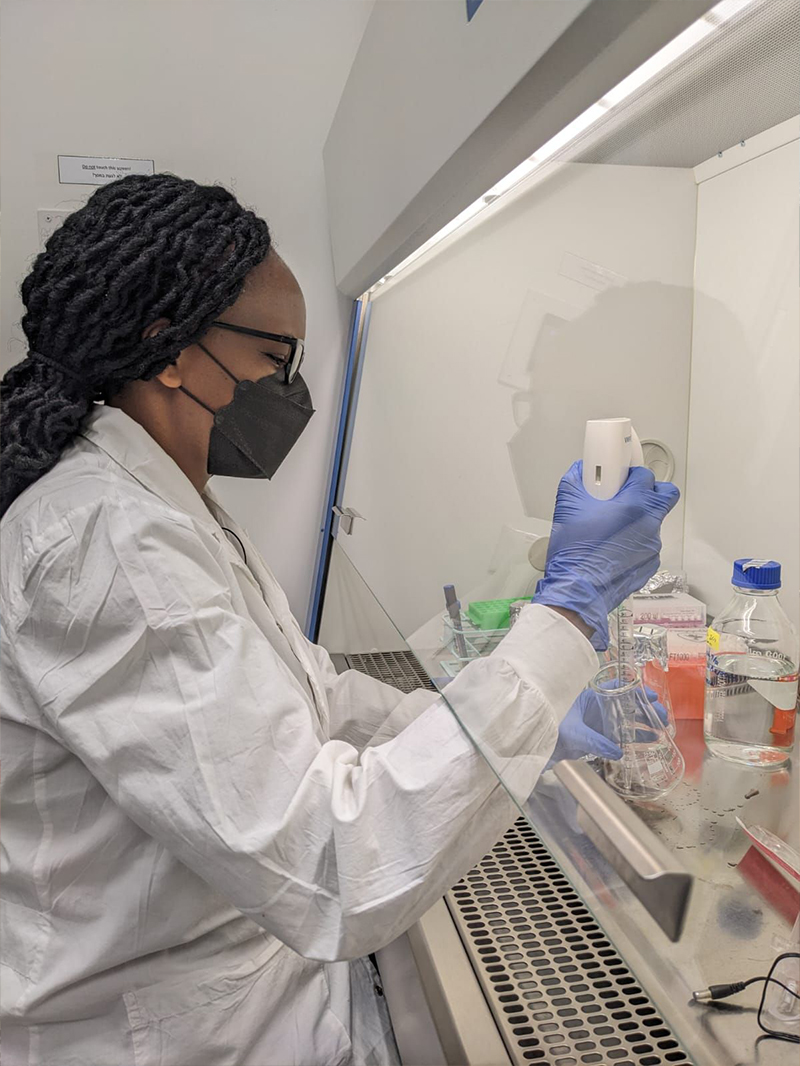עיתונאיות ועיתונאים, הירשמו כאן להודעות לעיתונות שלנו
הירשמו לניוזלטר החודשי שלנו:
Kator David Igbudu, a lecturer in the University of Nigeria’s Public Health Department, takes an active part in local initiatives against malaria and HIV. He involves youth in community campaigns to distribute mosquito nets and supports victims of sexual violence. “My passion to act toward preventing AIDS and malaria stems from the heavy burden these diseases impose on Nigeria’s population,” says Igbudu, who recently took part in the first session of Bridges of Science, a program that hosts outstanding physicians and students from Africa in Weizmann Institute of Science labs. Within the framework of the program, Igbudu embarked, for the first time, on fighting malaria in the lab. “While in Prof. Neta Regev-Rudzki’s lab, I worked on a project that tests the effectiveness of synthetic antimicrobial peptides in eradicating the malaria parasite,” he explains. “I improved my research skills and acquired knowledge of advanced lab techniques. But beyond that, I was greatly impressed by the way my Israeli colleagues deal with various wartime challenges and continue to focus on advancing science for the benefit of humanity and world health.”
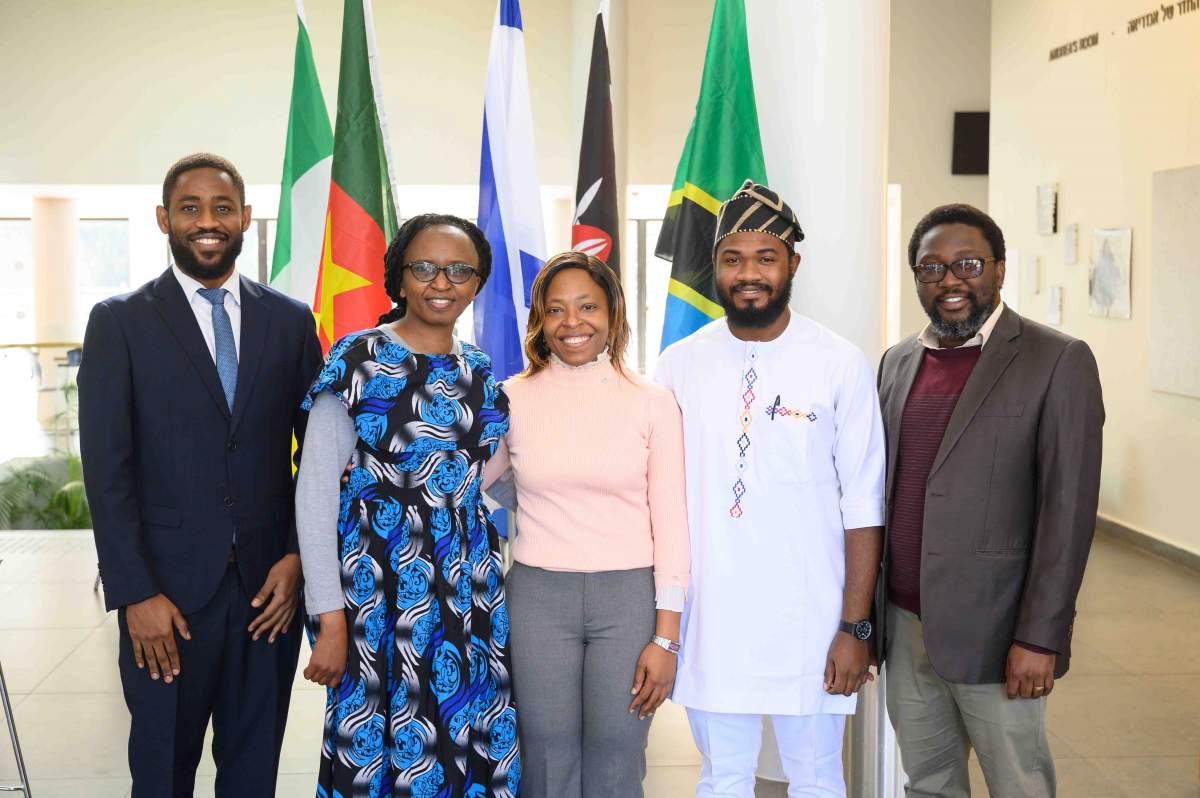
The Bridges of Science Program, created with the goal of bridging the gap between advanced medicine and basic research in sub-Saharan Africa, involves collaboration between two veteran Israeli institutions: the Hebrew University of Jerusalem and the Weizmann Institute of Science. Bridges of Science is expected to annually provide five excellent graduates of the International Master of Public Health (IMPH) program at the Hebrew University-Hadassah Braun School of Public Health and Community Medicine with the opportunity to spend 12 weeks in Weizmann Institute labs. Prof. Regev-Rudzki, from Weizmann’s Biomolecular Sciences Department, and Prof. Hagit Hochner, head of the Hebrew University’s IMPH program, are the initiators and the driving force behind Bridges of Science.
“For me, this collaboration is a dream come true,” says Regev-Rudzki, who is well familiar with Africa’s health challenges. “I wanted to open the gates of the Weizmann Institute to students and physicians from Africa, to give them access to advanced scientific resources that are not available to them at home. The program is a bridge that connects different worlds, enhances scientific research and strengthens intercontinental ties.”
""While African medicine has developed in response to numerous challenges, basic research on the continent significantly lags behind”
“The program, part of a long-standing tradition that started at the Hebrew University in 1971, involves collaboration with African students in the areas of public health and medicine,” Hochner says. “A new dimension has now been added to this tradition: exposure to basic science and advanced research at the Weizmann Institute. The program enables our outstanding graduates to become familiar with Israel’s groundbreaking science, which creates a foundation for continued training and collaboration between leading Israeli researchers and public health leaders in Africa.”
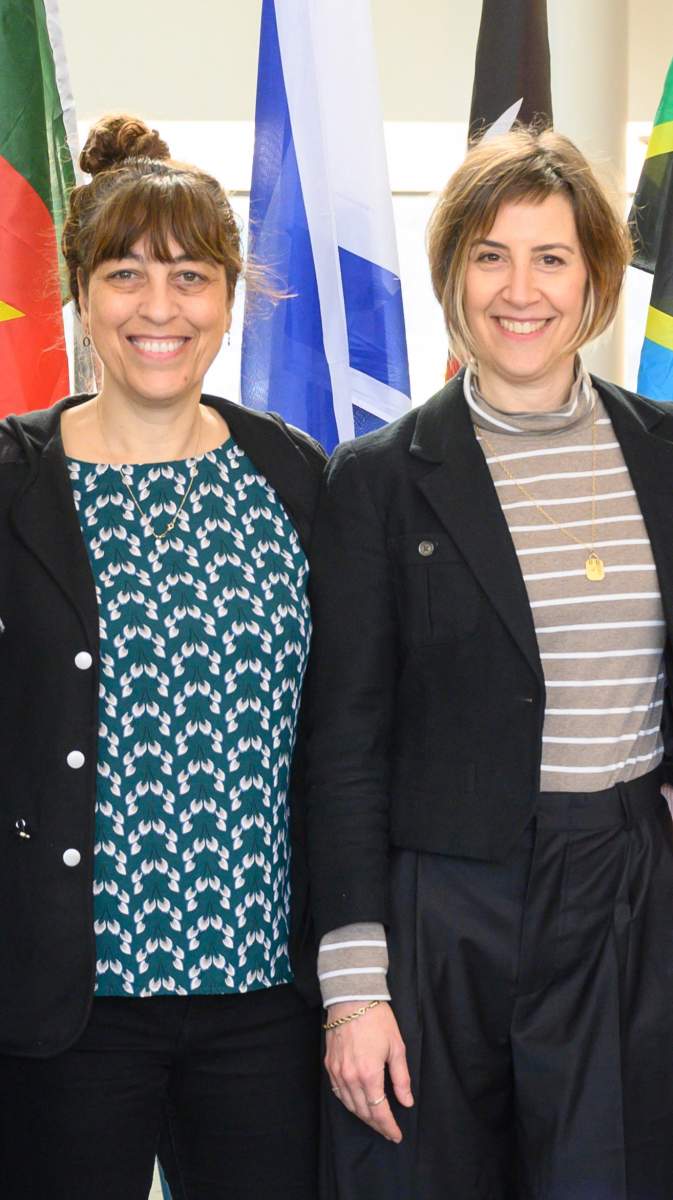
“While African medicine has developed in response to numerous challenges, basic research on the continent significantly lags behind. The program is specifically designed to bridge this gap,” Regev-Rudzki says. “Collaborations across cultures and continents not only advance knowledge, they are also a means of building bridges of understanding and innovation. We hope that the knowledge and tools that the program’s participants acquire here will serve them in their homelands. I have no doubt that by virtue of their positive experiences and the support they received here, some of them will turn into Israel’s unofficial ambassadors.”
This year’s Bridges of Science participants came from Nigeria, Kenya, Cameroon and Tanzania. They took active part in studies, experiments and scientific discussions at the Weizmann Institute, and at the end of the program presented their research results at the Bridges of Science symposium held at Weizmann in January 2025. “I hope to see you again, you are now part of the Weizmann family and will always be welcome here,” said Weizmann Institute Vice President Prof. Ziv Reich, addressing the program participants.
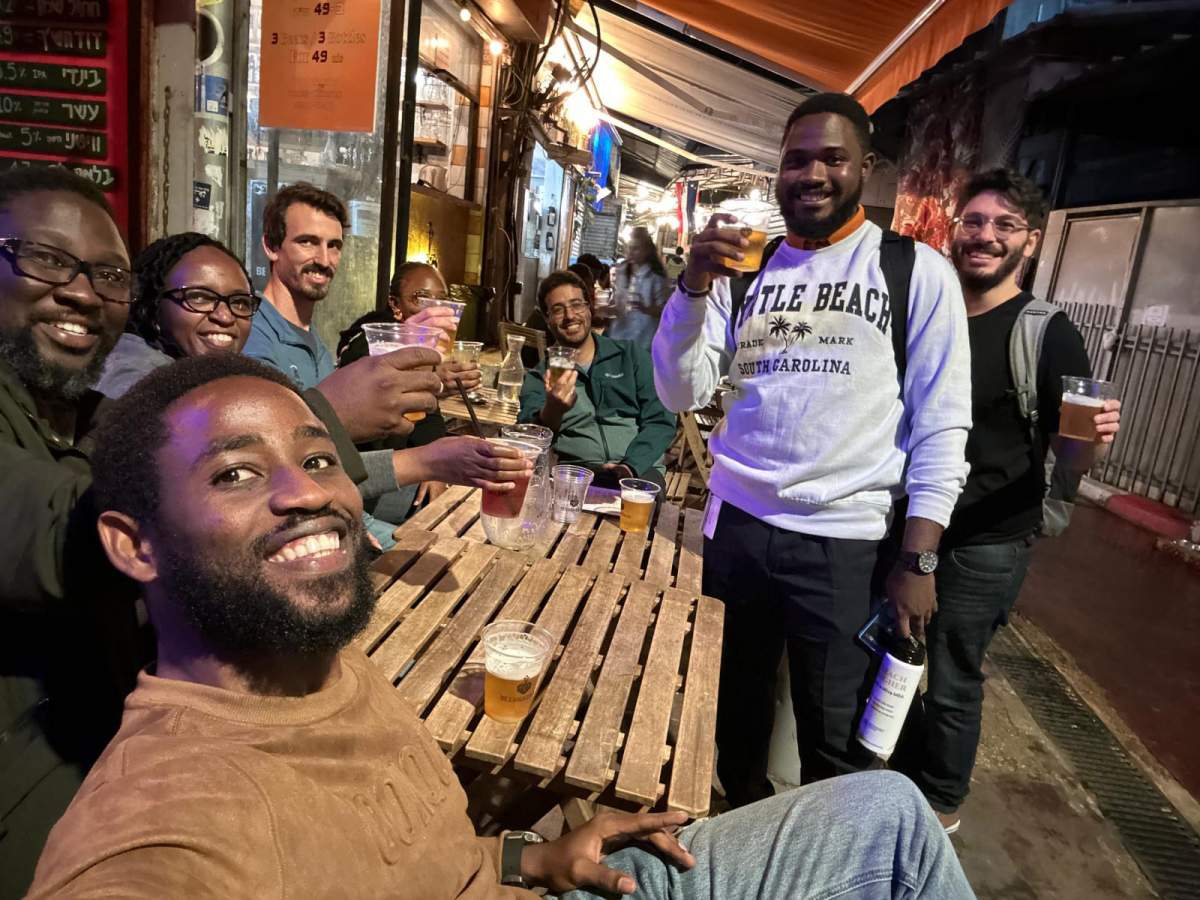
Dr. Paola Ines Kwawa Njotcho, a physician from Cameroon who is interested in cancer, arrived at Weizmann immediately after completing the IMPH program at Hebrew University. She joined Prof. Ruth Scherz-Shouval’s lab in Weizmann’s Biomolecular Sciences Department, which deals precisely with her area of interest. “My research in the lab focused on the role of cells in the microenvironment of cancerous tumors. The goal is to develop a therapy for pancreatic cancer. My exposure to the research process deepened my understanding of cancer biology and enabled me to develop new research skills. I had the privilege of working with an amazing and supportive lab team. I especially appreciated our joint lunches, which contributed to my feeling of belonging. In addition to working in the lab, I engaged in volunteer activity, which included helping to restore Kibbutz Kfar Aza, east of the Gaza Strip. This was an unforgettable experience.”
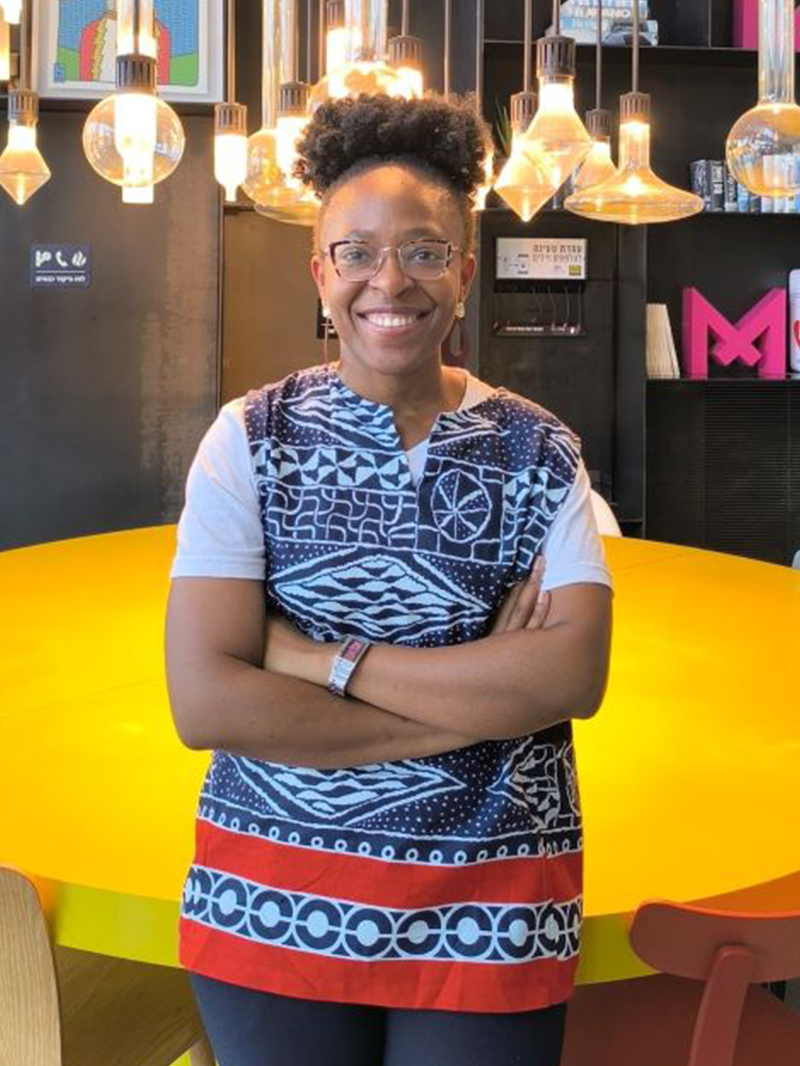
Dr. Martin Ngonyani, a physician from Tanzania, is proud to be among the first participants in Bridges of Science. Within the framework of the program, he conducted research on blood vessels under the guidance of Prof. Karina Yaniv of Weizmann’s Immunology and Regenerative Biology Department. “My stay at Weizmann was an experience that will affect the rest of my career as a physician. The institute provides an inspiring environment and an opportunity to work alongside dedicated people who advance humanity through scientific innovation. Taking part in the studies strengthened and deepened my curiosity about research, while working with other lab members opened before me an entire world of possibilities, knowledge, advanced technologies and collaborations. I’m leaving here with knowledge and experience that greatly enrich my attitude toward the world of science and medicine, which I hope to instill in people back home as well.
“Apart from professional development, my social experience at Weizmann was rich and special. I was privileged to get to know Israeli culture from up close, enjoy the local cuisine and discover a new love: hummus. In addition, I was warmly received by the institute’s football team, which allowed me to meet new people while playing a game that I love.”
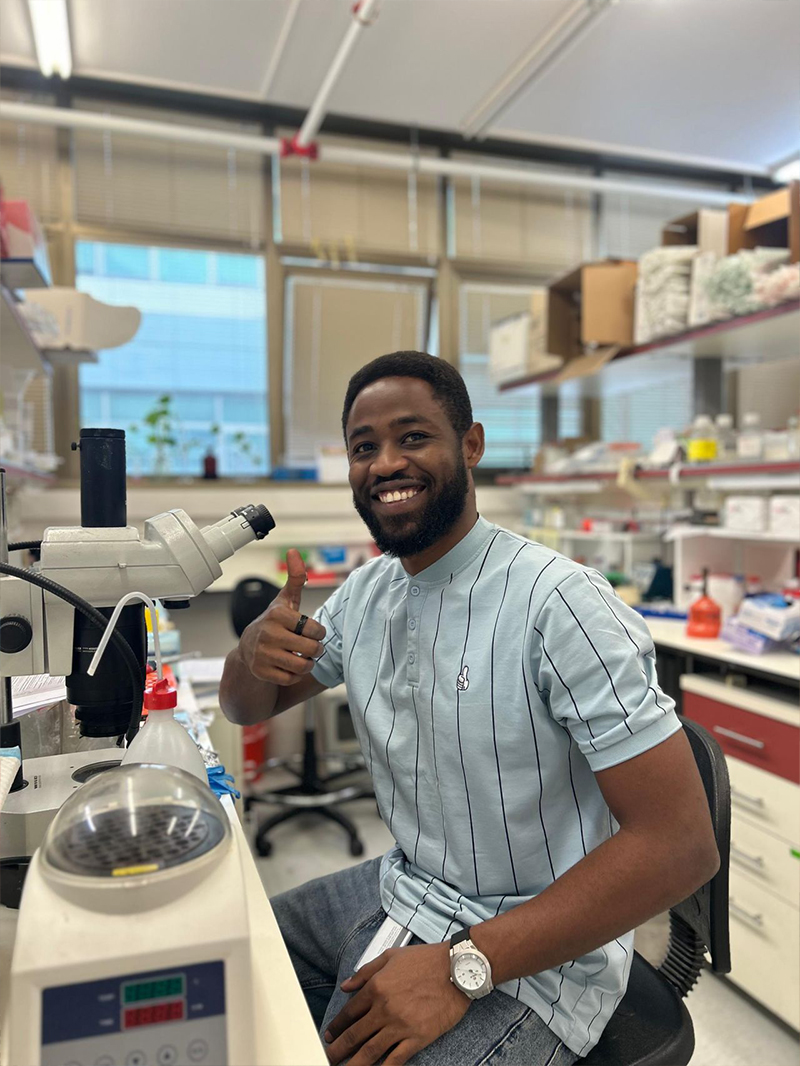
Dr. Innocent Mwombeki is a psychiatrist and head of research and training at Tanzania’s national mental health hospital. “My work focuses on evidence-based clinical models for treating mental health disorders and drug addictions,” he says. Within the framework of the Weizmann program, he took part in research under the guidance of Prof. Amnon Bar-Shir in the Molecular Chemistry and Materials Science Department. “My research here dealt with detecting disease by means of MRI scanning – a project that combined advanced technologies with cutting-edge research. The atmosphere at Weizmann and in Israel in general is known for its openness to foreigners. Participating in the program enabled me to expand my research skills, increase my professional network and get to know a global community of researchers dealing with basic and applied science. It was a unique opportunity that greatly contributed to my career as a researcher.”
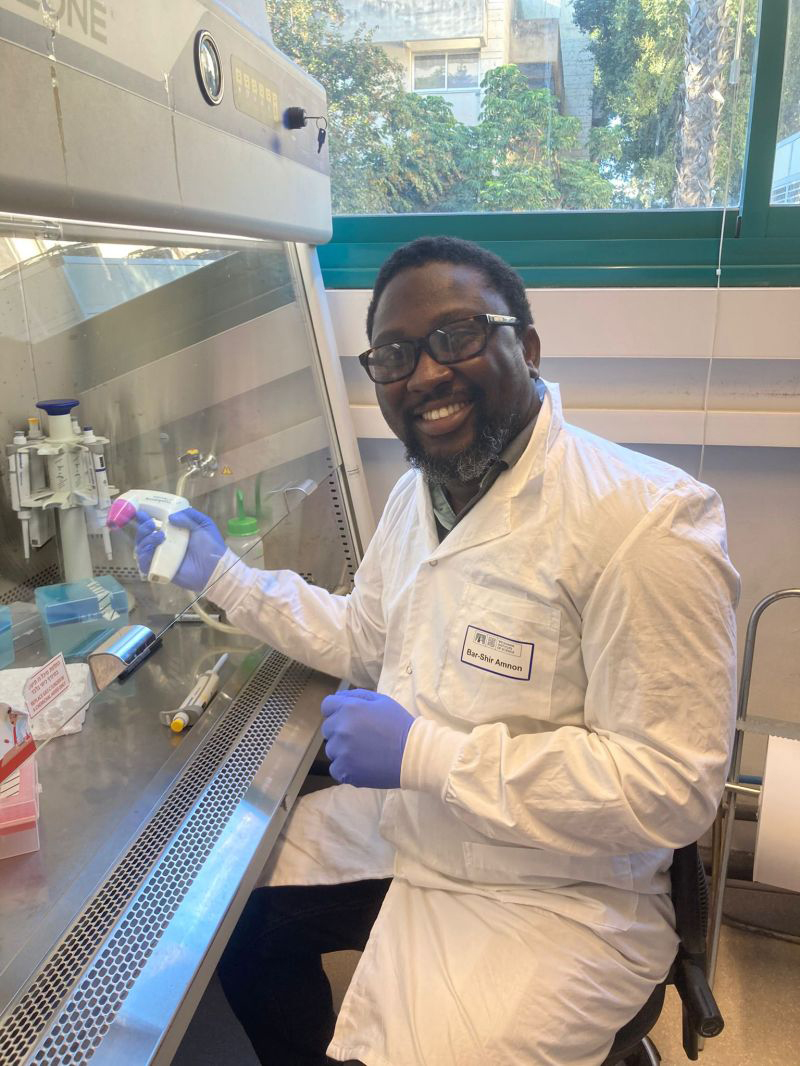
Dr. Stella Kanja, a physician from Kenya specializing in public and women’s health, became exposed at Weizmann to a field that is close to her heart but far from her day-to-day activity: oceanic studies. “I was hosted at Weizmann by Prof. Assaf Gal’s lab in the Plant and Environmental Sciences Department. The lab’s research focuses on biological and chemical processes in single-celled algae and their importance for the ecological system,” she says. “I learned about their central role in sequestering carbon dioxide and preventing acidification of oceans, an issue of paramount importance in fighting global warming.
“Lab members received me warmly and helped me learn innovative research techniques and perform my own experiments. This was a rare opportunity to take part in basic research and get to know advanced methods I wasn’t familiar with earlier. The program has been a unique and transformative experience, proving to me that science is a never-ending journey of revelation and knowledge. I’m excited to apply all that I learned here to my future challenges.”
Alongside the professional experiences, she says, surprisingly, that life in Rehovot is more vibrant than what she had come to know in Jerusalem. She recounts that arriving in Israel during a time of war revealed to her “the resilience and strength of Israeli society, as well as its exceptional humanity.”
